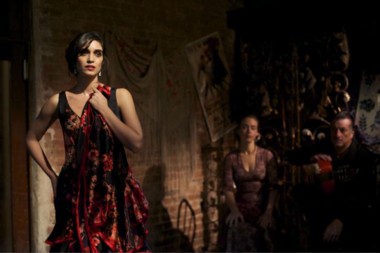In my life away from writing, I’m a musician. And over the years, as I’ve gone from being a Dylan-ripoff to a Tom Waits wannabe, I’ve always been surprised at just how many of my fellow musicians were “creative” types in their day-to-day lives: graphic designers, writers and editors, poets and filmmakers. There was something about music that we all needed; it provided a chance for us to make connections outside of ourselves—something that can be sorely missed when you spend most of your day hunched over a laptop.
These days I mostly play jazz, which for me offers an unparalleled chance at musical communication—every band has it on some level, of course, but the give-and-take of a group of improvising musicians struck a chord with me (no pun intended), and I haven’t looked back. One interesting thing I’ve noted about jazz musicians over the years is that many of us have a strange kind of sibling rivalry with classical musicians, who often use similar instruments to quite different ends. But despite those sometimes big differences, the genres share a core quality without which neither would mean much: communication.
That musical truth is put to the test in A Late Quartet, the first feature-length fiction from director Yaron Zilberman, better known for the 2004 documentary Watermarks, about a Jewish women’s swim team living under Fascism. His new film is a modern tale centered on a famous string quartet. As they enter their 25th year as a foursome, the dynamics that have kept them together for so long begin to break down when their eldest member (Christopher Walken as cellist Peter Mitchell) announces that he has been diagnosed with Parkinson’s disease.
Making matters tougher are two of the group’s other members—violist Juliette and second violin Robert (Catherine Keener and Philip Seymour Hoffman)—a married couple whose twenty-something daughter, bitter about her upbringing, has begun an affair with the group’s fourth member. A petulant Robert, who wants a share of the first violin duties, also has his own troubles to worry about when he makes an impulsive pass at his exercise partner.
“Our instruments must in time go out of tune, each in its own quite different way,” says Peter, but the heart of the group is in how those instruments—and the people that play them—hold together. Classical music is infamous for the outsized egos of its stars, but even the most inflated of them understands that the music demands that a group work as one to produce something greater than any of their single parts. As the film depicts the quartet working on Beethoven’s Quartet in C Sharp Minor (the actual playing is by the Brentano String Quartet), we are reminded that producing art for the ages means letting go of the present.
*
Also this week: There’s something about the lineup at Cinemark this week that makes me smile. Where else can you catch an Oscar contender like Argo and a live stream of the Royal Ballet, then turn around and see the new Bond movie, a smart animated feature like Wreck-It Ralph, and a classic like To Kill a Mockingbird (Nov.15, two shows)? It’s an embarrassment of riches (I’ve barely scratched the surface of what they’re showing), and if you haven’t been to the mall lately, you don’t know what you’re missing. Of course, sometimes an embarrassment of riches is heavier on the embarrassment than the riches: if you’re so inclined, you can catch a five-film marathon of the entire Twilight series of films on Nov. 15, beginning at 12 p.m. If you can survive the 637-minute running time, the shows will culminate in a screening of the franchise’s final installment, The Twilight Saga: Breaking Dawn—Part 2.
Jack Brown can be reached at cinemadope@gmail.com.



